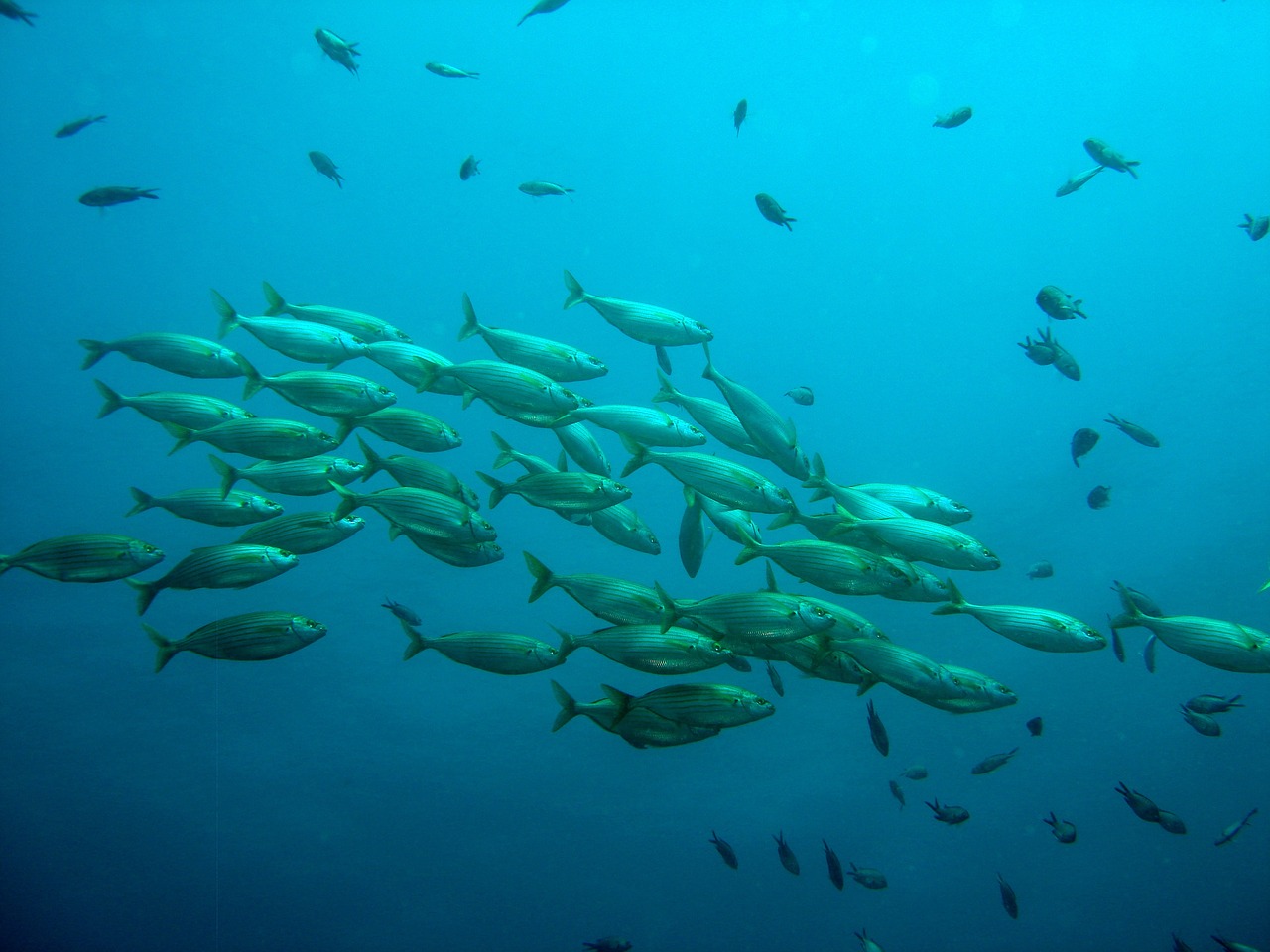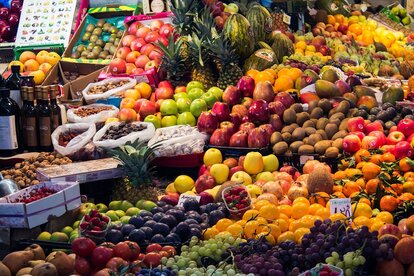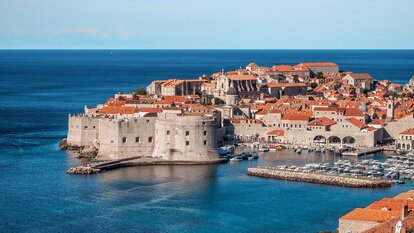Sustainability
The Sea of Dreams, History, Art and Future

Millions of people accumulate among their desires to know and enjoy one day the pleasure of the water, the beauty of the coasts, the sand of the beaches and the plethora of attractions that accumulate the countries of the Mediterranean Sea -which opens to the rest of the Planet from a natural strait, the Strait of Gibraltar, and another built expressly to communicate with the great oceans, the Suez Strait - a sea that bathes and circumnavigates three continents and preserves in its practice the broadest memory of the main religions, cultural variety, history and mythology that humanity remembers.
There is a reason why the Romans at the height of their splendour called it "Mare Nostrum", "Our Sea" now, although it would be better to call it the "Sea of Everyone", because the reality is that everyone, regardless of geographical origin, language or beliefs, can enjoy its attractions, sail among the waves, taste its exquisite gastronomy, enjoy its art and history, and bet on the economic, business and social possibilities that open up. It is inevitable not to link the Mediterranean with this dream destination, the world's favourite.
The Mediterranean holds contrasts as wonderful as they are sad, although we will focus on this present that leads us to a future in which words such as sustainability, progress, collaboration and development take on importance. The European shore sees the African shore with different eyes, which in turn is committed to resurgence and taking advantage of those natural resources that attract investment and, therefore, wealth for its people. A year with shadows, but also lights, is about to come to an end.
Let us not forget the climate that makes the countries of the Mediterranean offer a real range of possibilities and make them favourite destinations for the tourist sector. The economies of Italy, Greece and Spain are totally linked to the tourist industry. And what can we say about cruises on this sea of blue waters. On the other side are Tunisia, Morocco and Egypt, whose beaches, heritage and millenary cultures have managed to seduce tourists hungry for knowledge and enjoyment. According to Exceltur, tourism results in the Mediterranean have been good, starting with Spain, but mainly in the eastern area and the Balkans, with growth in Albania, Croatia and Turkey standing out.
It is also interesting to note the ICCA (International Congress and Convention Association) ranking, which analyses the countries and cities that have held the highest number of congresses or meetings and which shows that in 2022, among the top 10 are Mediterranean countries such as Spain, Italy, France and Portugal. The United States is the country at the top of the list.

When the outsider tours the shores of the Mediterranean with a monumental guidebook in hand, he ends up with a sense of grandeur that transforms the capacity for appreciation and admiration of his feelings. He will never know what impressed him more: the Alhambra in Granada, the two-century-old mosaics preserved in Paphos (Cyprus) or the Pyramids in Egypt, after contemplating the grandeur of Versailles, the Colosseum or the Pantheon in Rome or the Acropolis and the theatre of Dionysus in Athens, not forgetting the Hagia Sophia mosque in Istanbul, the Cypriot Orthodox temples or the co-cathedral of St John in Valletta.
A memory that cannot be imagined, but also not forgotten when reliving the present, unforgettable past, is that left and will always perpetuate the Library of Alexandria, the best example of the will to know, to preserve what is known and the desire to continue learning through history. That initiative which, three hundred years before Christ, contrasted and alternated with the atmosphere of war and the conquest of power represented by Alexander the Great, at a time when reading stood up to the supremacy of arms.
The wealth of monuments and ornamentation that the Mediterranean offers for contemplative enjoyment is incalculable both for its grandeur and its variety. All the countries that coexist on its shores offer proof of their capacity for the cultivation of art and beauty in their different periods. It is for this reason that the Mediterranean has become and continues to become the protagonist of so many initiatives. Let's remember the motto of the most important art fair in Spain, ARCO, this year that is coming to an end: "Mediterranean: a round sea". This exhibition, curated by the Greek Marina Fokidis, was held in February and managed to attract artists from different branches in order to show the diversity so characteristic of the region, its wealth of imagination.

Fishing and agriculture
It is impossible to talk about the Mediterranean without remembering that its waters, normally warm and peaceful, reach a depth of 1,300 metres and are home to a rich variety of fish and molluscs that complement the region's agricultural and livestock production both on the tables and as a source of work for the professional tradition of the fishermen who, in addition, give the coastal villages a character full of typicality.
And on this path we have come across interesting initiatives with clear aims: to conserve it, to look after it, to watch over it. Last month, for example, we learned about the measures that the European Union and 20 other countries agreed to improve fisheries management during the General Fisheries Commission for the Mediterranean of the Food and Agriculture Organisation of the United Nations (FAO), held in Croatia. Government representatives met with one main objective: to make sustainable use of marine resources. According to the FAO's "State of Mediterranean and Black Sea Fisheries" report, overfishing has fallen by 15% in the last year, dropping below 60% for the first time, which is worrying but indicates that overfishing is decreasing.
The Mediterranean needs actions of this type on different fronts, as it is also clear that it is a sea that is being punished by different factors such as climate change. The fight for sustainability in order to achieve a better future for future generations is becoming not only necessary, but also urgent.

Croacia
© PixabayThe COP28 climate summit was recently held in the United Arab Emirates (Dubai), where the abandonment of fossil fuels and the need to promote renewable energies were two key issues. As the media reported, an important event of this meeting was the approval of the implementation of a loss and damage fund for the most vulnerable countries.
The Mediterranean countries on both sides of the Mediterranean are committed to a more sustainable world, to the conservation of biodiversity and the environment through measures and projects that promote alternative energies. Morocco, for example, has begun its race for green hydrogen, as has Spain, which, together with Iberdrola, is planning Europe's largest green hydrogen plant in Huelva.
Mediterranean agriculture is another economic tradition that makes a highly valued contribution to the assortment of food shops in many countries. Vegetables, citrus fruits and fruits from this region are a further contribution of the Mediterranean countries. Let us not forget that this is the origin of a large part of the world's agricultural products: who does not think of olive oil, wine, meat, cereals? Increasingly sustainable agriculture is another of the objectives towards which we are already working with initiatives such as those contained in the European Green Pact. In this field, too, a great effort is being made to modernise and advance in a way that is as environmentally friendly as possible.
Another important meeting was also held in Barcelona in November, the 8th Regional Forum of the Union for the Mediterranean (UfM), chaired by the EU High Representative, Josep Borrell, and attended by 27 foreign ministers from the Euro-Mediterranean region. On this occasion, the need to guarantee peace and security in the area was discussed.
The UfM, made up of 43 members, was created with the aim of promoting the integration and sustainable development of the region through collaboration between the member countries and to promote economic and human development, digital transformation, the fight against climate change...
Nothing that arouses interest and curiosity escapes the two and a half million square kilometres that make the Mediterranean the second largest inland sea on Earth and the origin of most of the great cultures, such as the Romans, Greeks, Phoenicians and Muslims. Here is its past, ahead... a future full of challenges.
